- Home
- Anne McCaffrey
The Mystery of Ireta Page 7
The Mystery of Ireta Read online
Page 7
Yet there was fang-face! The size of him! She recalled tree tops shivering at his passage in the tape Kai had made. The main force-screen would burn him, probably dissuade him . . . there hadn’t been much animal life around those active volcanoes so creatures great and small on Ireta knew about fire and burn. The problem was that the smaller screens weren’t powerful enough to stop a determined attempt by fang-face if he were hungry, or scared, and that was what she had to allow for—the appetite of such predators as fang-face.
Varian had taped a course for the northeast, the vast high plateau ringed by the tremendous “mountains of the moon,” as Gaber had called them. Two subcontinents had ground into each other, Gaber had told her pedantically, to force high those great stone peaks. The plateau beneath them had once been ocean bed. Anyone returning to that area had been enjoined by Gaber and Trizein to look for fossils on the rock faces. It was here, at the foot of the new fold mountains, that Kai hoped to start finding pay dirt. This was well beyond the ancient corings. For some reason, the discovery of the old cores reassured Varian. Kai appeared worried about them and she couldn’t imagine why. EEC wasn’t likely to lose a planet they’d already twice explored. Besides, the Theks lived long enough to correct any mistakes they made—if they ever made any. Or maybe it was because they had time enough to correct any that it only appeared they were infallible.
Between the camp and the plateau they were heading for, with its coarse ground cover, not quite grass and not really shrub or thicket, was a wide band of rain forest through which Mabel’s ilk passed and where a fang-face was liable to lurk. Far to the east were clouds, signs of volcanic activity. Occasional claps of thunder, not meteorological in origin, rumbled to the sensors of the sled.
They spotted one set of circling scavengers and landed to investigate, but the prey had long since been reduced to a bony structure. Any evidence of beast-gouging was long gone. The dead weren’t carrion long on Ireta. Tenacious insects were riddling the skeleton with industrious pinchers so that even the bones would be gone in the next day. The tougher skull was intact, and Varian, first spraying with antiseptic, examined it.
“One like Mabel?” Paskutti asked as Varian turned the skull from side to side with her boot.
“Crested at any rate. See, the nasal passage extends . . . I’d say Mabel and her kind smell a lot better than they see. Remember her performance this morning?”
“Everything smells on this planet,” replied Paskutti with enough vehemence to cause Varian to look up. She thought he was being humorous, but he was deadly serious.
“Yes, the place stinks, but if she’s used to it, she’d catch the overlying odors and take appropriate action. Yes, it’s her nose that’s her first line of defense.”
She took some three-dimension close-ups and with some effort broke off a piece of the nasal cartilage and a sliver of bone for later study. The skull was too cumbersome to transport.
The scavengers remained aloft, but as soon as Varian lifted the sled, they descended as if they hoped the intruders had discovered something they’d missed on the well-picked carcass.
“Waste not, want not,” Varian muttered under her breath. Life and death on Ireta moved swiftly. Small wonder that Mabel, grievously wounded though she was, had struggled to stay on her feet. Once down, the wounded seldom rose. Had she done Mabel any favors, succoring her so? Or had they merely postponed her early death? No, the wound was healing; the gouging teeth had not incapacitated muscle or broken bone. She’d live and, in time, be completely whole again.
The sled was approaching the general grazing area where they’d found Mabel. Varian cut out the main engine, settling it to hover. The herd was there, all right. Varian caught sight of the mottled hides under the broad and dripping tree leaves, downwind of the creatures. They’d been too precipitous before and scared the herd off, with the exception of Mabel who hadn’t been able to run fast enough.
Varian wondered at the intelligence level of the herbivores. You’d think this species would have learned to set out sentinels, the way animals on other inimical worlds did, to forewarn the main herd of the arrival of dangerous predators. No, the size of the brain in that bare skull had been small, too small, Varian realized, to guide the great beast. A tail brain, perhaps? Long ago, far away, she’d heard of that combination. Not uncommon to have a secondary motor control unit in so large a beast. And then the nasal passages had pushed the brain case back. More smell than sense, that was Mabel!
“I see one, flank-damaged,” said Tardma, peering over the port side. “Recent attack!”
Varian sighted in on Tardma’s beast and suppressed a shudder. She saw the bloodied mess of flank and wondered at the stoicism of the injured beast, chomping away at tree leaves. Hunger transcending pain, she thought. That’s the dominant quest on this planet, the ease of hunger.
“There is another one. An older wound,” Paskutti said, touching Varian’s shoulder to direct her attention.
The wound on the second beast was scabbed over, but when she intensified the magnification she could see the squirming life was parasitic to the wound. Occasionally the herbivore interrupted its feeding to gnaw at its flank, and masses of parasites were dropping off, their hold on raw flesh loosened.
Slowly moving and staying downwind of the herd, they made their survey. With few exceptions, all the herbivore displayed the gruesome flank gouges. And the exceptions were the young, the small specimens.
“They can run faster?” asked Tardma.
“Not juicy enough, more likely,” replied Varian.
“Protected by the adults?” asked Paskutti. “You remember that the smallest ones ran in the center of the herd when we first encountered this species.”
“I’d still like to know why . . .”
“We may find out now,” said Paskutti, pointing below.
At the farthest edge of the rain forest, one of the herbivores had stopped eating and had stretched itself up on its hind legs, its crested head pointing steadily north. It dropped suddenly, wheeling, emitting a snorting kind of whistle as it began to run due south. Another beast, not alarmed by the departure of the first, seemed to catch the same scent. It, too, whistled, dropped to all fours and began to trundle south. One by one, independently, the herbivores moved away, the smaller ones following the elders, and gradually overtaking them. The whistles grew more noisy, frightened.
“We wait?” asked Tardma, her blunt fingers twitching on the controls.
“Yes, we wait,” said Varian, uncomfortably aware of the suppressed eagerness in Tardma’s manner.
They didn’t have long to wait. They heard the crashing approach some seconds before seeing it, a pacing creature, head low, short forepaws extended as it ran, its thick heavy tail counterbalancing the heavy body. The big-jawed mouth was open, saliva foaming through but not obscuring the rows of spiky teeth. As it ran past the hovering sled, Varian saw its eyes, the hungry little eyes, the vicious eyes of the predator.
“Are we following?” asked Tardma, her voice curiously breathy.
“Yes.”
“To stop the ecological balance?” asked Paskutti.
“Balance? What that creature does is not balance, that’s not killing for need: that’s maiming for pleasure.”
Varian felt herself inwardly shaking with the force of her words. She ought not to get so upset.
“Perhaps, perhaps not,” said Paskutti and started the drive, to follow the predator.
Though it was not always in the scope, its course was easily followed by the broken or shaking trees, and sudden flurries of the avian life forms or the startled scampering of small ground creatures. Its speed was considerably more than the lumbering herbivores, and it was only a matter of time before it overcame the distance between them. If Varian found herself responding to the chase stimulus with quickened breath, dry throat and internal quivering, she was astounded by the metamorphosis of the heavy-worlders. For the first time since she had worked with them, they were displaying emotio
n: their faces contorted with an excitement, a lust, an avidity that had nothing to do with civilized reactions.
Varian was appalled, and had she been at the controls instead of Paskutti, she would have veered away from the finale of this chase. That, in itself, would have been an act to undermine her authority over the heavy-worlders. They were tolerant of light-gravity physical limitations, but they would have been contemptuous of moral cowardice. She had after all, Varian realized, organized this expedition to discover how dangerous the predator was to the herbivores and to secondary camps. She couldn’t turn aside because of squeamishness. And she didn’t understand her own reactions. She’d seen more hideous forms of death, worse battles of animal against animal.
The predator had caught up with the main herd. It singled out one beast, pursuing the terrified animal into a cul-de-sac caused by fallen trees. Frantic, the herbivore tried to climb the trunks, but it had ineffectual forefeet for such exercise and too much bulk for the stumps to sustain. Bleating and whistling, it slid into the predator’s grasp. With one mighty blow of a hindleg, the carnivore downed the fright-paralyzed herbivore. The predator measured a distance on the quivering flank; its front paws, far smaller than the massive hindlegs, were almost obscene in this gesture. The herbivore screamed as the predator’s teeth sank into the flank and ripped off a hideous mouthful. Varian wanted to retch.
“Frighten that horror away, Paskutti. Kill it!”
“You can’t rescue all the herbivores on this world by killing one predator,” said Paskutti, his eyes on the scene below, shining with what Varian recognized as a blood lust.
“I’m not rescuing all of them, just this one,” she cried, reaching for the controls.
Paskutti, his face once more settling into the more familiar, emotionless lines, switched the sled to full power and dove at the carnivore which was settling itself for a second rending bite. As the sled’s exhaust singed its head skin, it roared. Rearing up, counterbalanced by the huge tail, it tried to grab at the sled.
“Again, Paskutti.”
“I know what I’m doing,” said Paskutti in a flat, dangerous voice.
Varian looked at Tardma, but she, too, had eyes for nothing but this curious battle. Why, thought Varian, appalled, he’s playing with the predator!
This time Paskutti caught the predator off-balance. To keep upright, it had to release the herbivore.
“Get up, you silly creature. Get up and run,” cried Varian as the whistling, bleating grass-eater remained where it had fallen, blood oozing from the bitten flank.
“It hasn’t wit enough to know it’s free,” replied Tardma, her tone even but scornful.
“Drive the carnivore back, Paskutti.”
Varian needn’t have spoken, for that was what the heavy-worlder was doing. The predator, now recognizing an enemy above it, attempted to bat the menace from the sky with its forelegs and massive head. Instead, it was driven, back, back, away from the herbivore.
Paskutti played with the creature who impotently tried to defend itself. Before Varian realized what Paskutti intended, the man swung the sled and let a full blast of its jets into the predator’s head. A bellow of pain assailed their ears as the sled accelerated violently forward, throwing Tardma and Varian against their straps. They were thrust in the other direction as Paskutti veered back to survey the effect of his chastisement.
The carnivore was trying to get its forepaws to its face, now blackened and bleeding from the jet blast. It rolled its head in agony as it lurched blindly about.
“Now let us see if it has learned a lesson,” Paskutti said and drove the sled back toward the beast.
It heard the sled, roared and stumbled wildly in the opposite direction.
“There, Varian. It has learned that a sled means pain. That one won’t bother any area where it hears sleds.”
“That wasn’t what I was trying to do, Paskutti.”
“You xenobs get soft-headed. It’s tough, that killer. It’ll recover. You will want to tend the wounded herbivore?”
Controlling her sudden revulsion of Paskutti with a tremendous effort, Varian nodded and busied herself with her veterinary supplies. The herbivore was still on its side, too terrified to right itself and run. Its injured limb twitched and exposed muscles rippled, each time causing the herbivore to whistle and bleat in pain. Varian ordered Paskutti to hover the sled directly over the creature which was oblivious to anything except its terror and pain. It was simpler to sprinkle an antibiotic and spray the seal on from above. They continued to hover, at a higher altitude, until the beast realized that it was no longer in any danger and struggled to its feet. Then it sniffed about, and reassured, shook, bellowing as the reflex action caused discomfort in the leg. Abruptly it snatched at a hanging frond and munched. It looked for more food, turning about and then finally began to wander away from the trap, sniffing occasionally at the wind, bleating and whistling when it remembered it was wounded.
Varian felt Paskutti watching her. She didn’t want to meet his eyes for fear he would see her revulsion of him.
“All right, let’s extend our search in this area. We’ll want to know what other life-forms live in these foothills before the geologists can safely work here.”
Paskutti nodded and swung toward the northeast again. They encountered and tagged three more herding types. Varian, still numbed by the earlier incident, gradually woke up to the fact that each of the new species must have had some common ancestor before evoluntionary differences developed to put them into a subgrouping.
When they returned to the base camp as the evening drenching began, Varian noticed that Tardma and Paskutti were as glad to be released from the close quarters of the sled as she was. She told Paskutti to check the sled over, Tardma to give Gaber the tape files, and she went down to check on Mabel. The herbivore had reduced the trees of its enclosure to mere stumps. The full leg seal had held, and Mabel did not appear to favor the injured leg. Varian was both eager and reluctant to release her patient, but the logistics of supplying Mabel with sufficient fodder made her independence necessary. She decided to let Mabel go in the morning and follow it, at a discreet distance, in the sled. She would like to establish if it had any instinctive direction, if it had any communication with other members of its herd or species. Today the herbivores had responded to the dangerous approach of the predator on an individual basis. Too bad the silly fools couldn’t gang up on their killer. By mass they could overpower it if they’d any courage at all. Or any leadership.
Could she stimulate Mabel’s intelligence in any way, she wondered. And as quickly decided such a program would be impossible. It would take too long and the chances of success, with Mabel’s brain space, were unlikely. Mabel needed some physical modifications to achieve any measure of intelligence. There wasn’t room enough in its skull for more than essential locomotion. Unless it had spare brains in its tail! And they’d provide more motor control, too. Of course, she had encountered species with auxiliary nerve centers for controlling extremities while their intelligence, or main brain, was centrally located in the most protected part of their form. Man was, Varian reminded herself, not for the first time, rather badly designed. She understood the Theks held that opinion.
She was strolling thoughtfully back to the compound when she heard the whush of a returning sled and her name called. She caught sight of Kai’s face. He looked happy about something. He was gesturing her to hurry up and join him. When she did, his usually composed face was brimming with excitement. Even Bakkun had an air of satisfaction about him.
“We’ve got some tapes you’ve got to see, Varian. We found one of your fang-faces . . .”
“Don’t talk to me about it!”
“Huh? Had a rough day? Well, this will cheer you. I need your expert opinion.”
“I will take our findings up to Gaber,” said Bakkun, leaving the co-leaders together as he strode toward the cartographer’s dome.
“You had a good day, then?” Varian put aside her ne
gative mood. She had no right to depress Kai or spoil his achievement.
“Very good. Just wait till you see.” He was guiding her toward the shuttle. “Oh, how was yours? Could you clear that northeast section of foothills for a secondary camp?”
“Let’s see your tapes first,” she said, and hurried him along to the pilot cabin.
“Admittedly, I don’t know that much about animal behavior,” he said as he slid the tape into the viewer and activated the playback, “but this just doesn’t seem logical. You see, we found the golden fliers a good hundred and sixty kilometers from the sea . . .”
“What? Doesn’t make sense . . .”
The tape was playing now and she watched as the fliers came on the screen, the threads of grass visible in their beaks.”
“You didn’t think to . . .”
“I got samples of all the greens, grass and bush . . .”
“And they are green, instead of half-purple or blue . . .”
“Now watch . . .”
“Fardles! What’s that thing doing there?” The predator had entered the valley, a dwarf figure until the close-up lens magnified it to a comparative life-size. “That’s the beast that ate Mabel and . . .”
“Can’t be the same one . . .”
“I realize that, but they are double-dangerous. We had one today, took a hunk out of another herbivore until we intervened. Why, scorch the raker, he’s eating grass!” Astonishment silenced Varian. “I wonder what’s so essential in that grass. Damned curious. You’d think they’d have everything they need in their environment. Now, he might be local. But the fliers couldn’t be . . .”

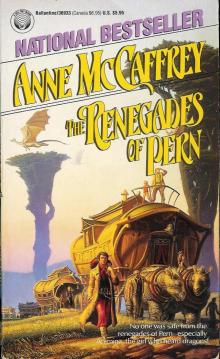 The Renegades of Pern (dragon riders of pern)
The Renegades of Pern (dragon riders of pern)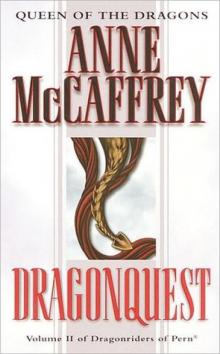 Dragonquest
Dragonquest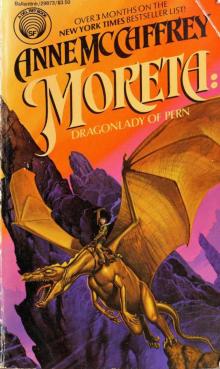 Moreta (Dragonlady of Pern)
Moreta (Dragonlady of Pern)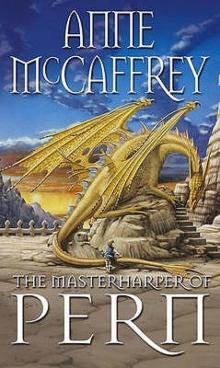 The Masterharper of Pern
The Masterharper of Pern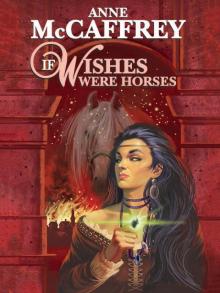 If Wishes Were Horses
If Wishes Were Horses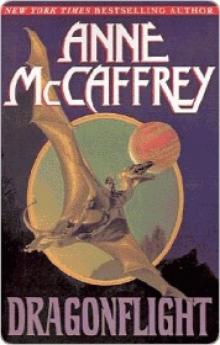 Dragonflight
Dragonflight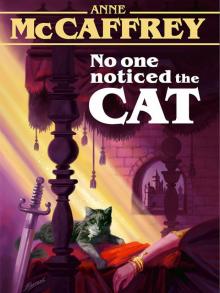 No One Noticed the Cat
No One Noticed the Cat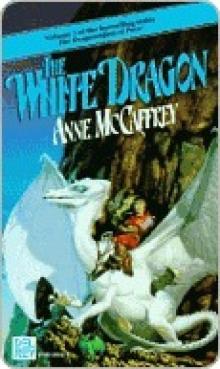 The White Dragon
The White Dragon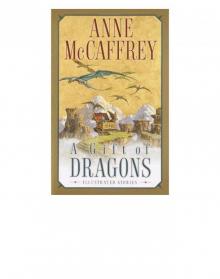 A Gift of Dragons
A Gift of Dragons Harper Hall - Dragonsong
Harper Hall - Dragonsong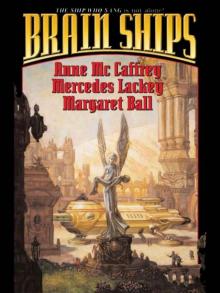 Brain Ships
Brain Ships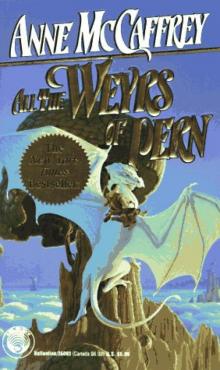 All The Weyrs of Pern
All The Weyrs of Pern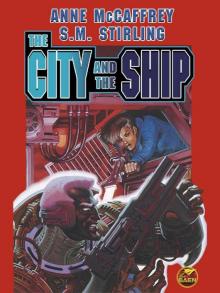 The City and the Ship
The City and the Ship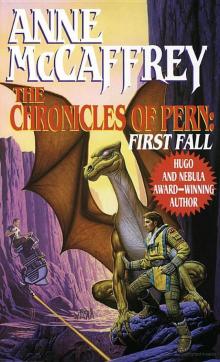 The Chronicles of Pern: First Fall
The Chronicles of Pern: First Fall Acorna’s Search
Acorna’s Search Powers That Be
Powers That Be Second Wave
Second Wave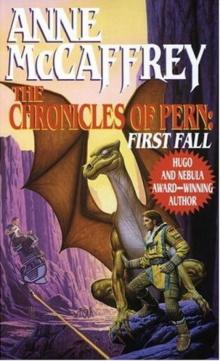 Chronicles of Pern (First Fall)
Chronicles of Pern (First Fall)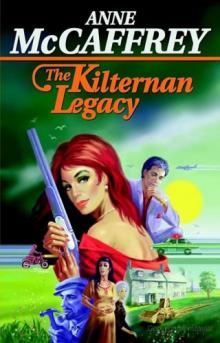 The Kilternan Legacy
The Kilternan Legacy Decision at Doona
Decision at Doona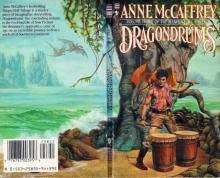 Dragondrums (dragon riders of pern)
Dragondrums (dragon riders of pern) Dragonsinger (dragon riders of pern)
Dragonsinger (dragon riders of pern)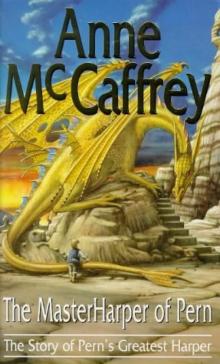 The Master Harper of Pern
The Master Harper of Pern Crystal Singer
Crystal Singer Acorna’s People
Acorna’s People Pegasus in Flight
Pegasus in Flight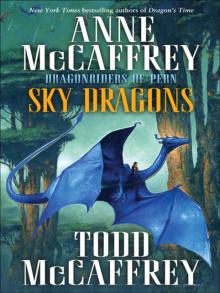 Sky Dragons Dragonriders of Pern
Sky Dragons Dragonriders of Pern Dragonriders of Pern 4 - Dragonsinger
Dragonriders of Pern 4 - Dragonsinger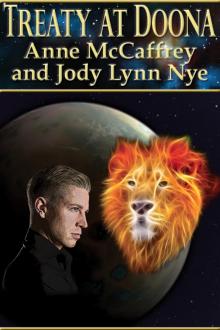 Treaty at Doona
Treaty at Doona Damia's Children
Damia's Children Stitch In Snow
Stitch In Snow The Rowan
The Rowan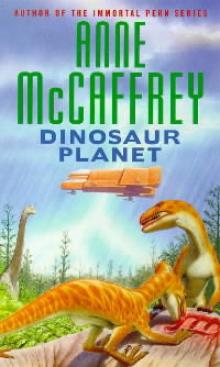 Dinosaur Planet
Dinosaur Planet The Year of the Lucy
The Year of the Lucy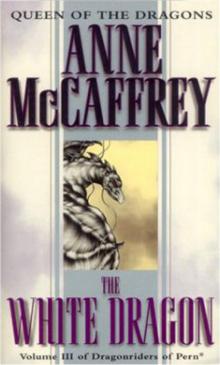 The White Dragon p-4
The White Dragon p-4 Power Lines
Power Lines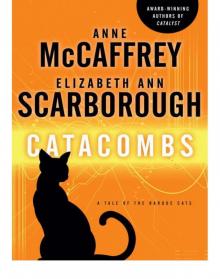 Catacombs
Catacombs Moreta
Moreta Dragonsinger
Dragonsinger Crystal Line
Crystal Line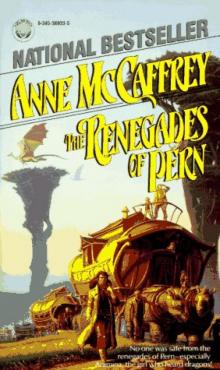 The Renegades of Pern
The Renegades of Pern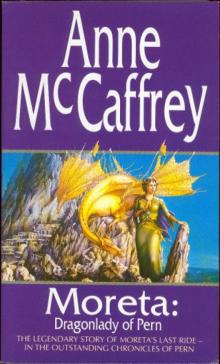 Moreta - Dragonlady of Pern p-8
Moreta - Dragonlady of Pern p-8 Deluge
Deluge The Skies of Pern
The Skies of Pern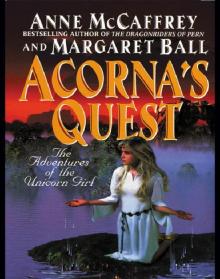 Acorna's Quest
Acorna's Quest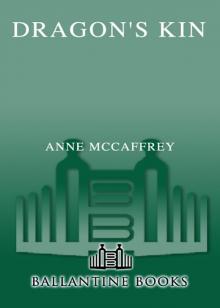 Dragon's Kin
Dragon's Kin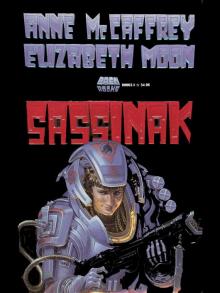 Sassinak
Sassinak![Crystal Universe - [Crystal Singer 03] - Crystal Line Read online](http://i1.bookreadfree.com/i1/03/31/crystal_universe_-_crystal_singer_03_-_crystal_line_preview.jpg) Crystal Universe - [Crystal Singer 03] - Crystal Line
Crystal Universe - [Crystal Singer 03] - Crystal Line Freedom's Landing
Freedom's Landing Acorna’s Quest
Acorna’s Quest Masterharper of Pern
Masterharper of Pern Restoree
Restoree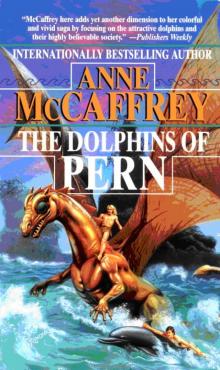 Dolphins of Pern
Dolphins of Pern The Ship Who Saved the Worlds
The Ship Who Saved the Worlds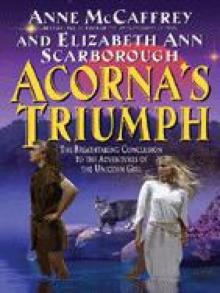 Acorna's Triumph
Acorna's Triumph Acorna's Rebels
Acorna's Rebels![[Acorna 08] - First Warning: Acorna's Children (with Elizabeth Ann Scarborough) Read online](http://i1.bookreadfree.com/i1/04/06/acorna_08_-_first_warning_acornas_children_with_elizabeth_ann_scarborough_preview.jpg) [Acorna 08] - First Warning: Acorna's Children (with Elizabeth Ann Scarborough)
[Acorna 08] - First Warning: Acorna's Children (with Elizabeth Ann Scarborough)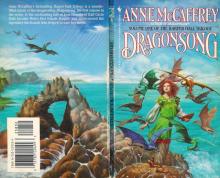 Dragonsong (dragon riders of pern)
Dragonsong (dragon riders of pern) Dragonriders of Pern 6 - Dragondrums
Dragonriders of Pern 6 - Dragondrums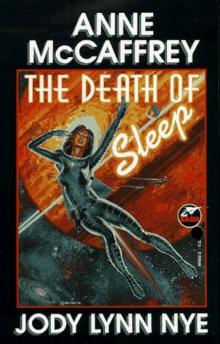 The Death of Sleep
The Death of Sleep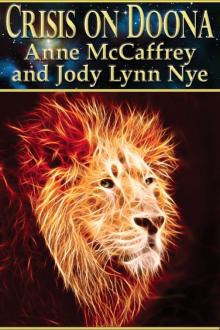 Crisis On Doona
Crisis On Doona Nimisha's Ship
Nimisha's Ship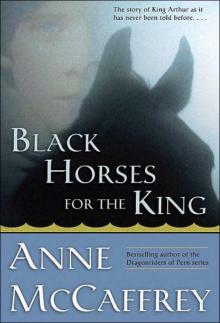 Black Horses for the King
Black Horses for the King Changelings
Changelings Freedom's Choice
Freedom's Choice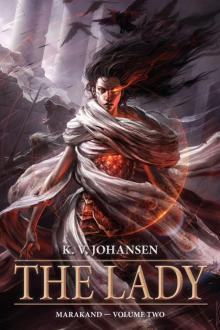 The Lady
The Lady The Coelura
The Coelura Catalyst
Catalyst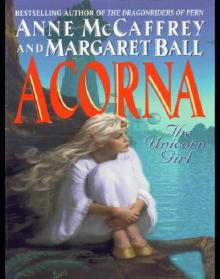 The Unicorn Girl
The Unicorn Girl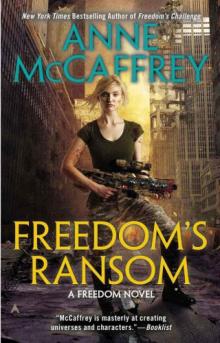 Freedom's Ransom
Freedom's Ransom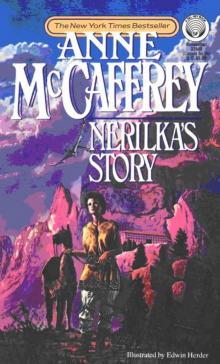 Nerilka's Story
Nerilka's Story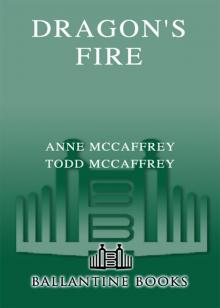 Dragon's Fire
Dragon's Fire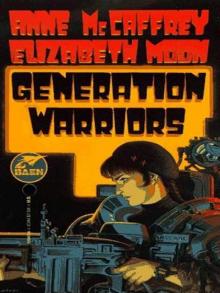 Generation Warriors
Generation Warriors Lyon's Pride
Lyon's Pride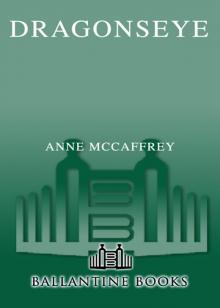 Dragonseye
Dragonseye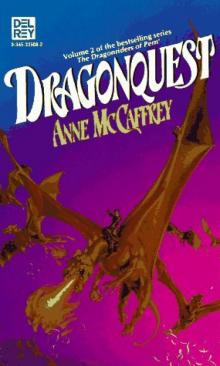 Dragon Quest
Dragon Quest Dragondrums
Dragondrums Dragonsong
Dragonsong The Mystery of Ireta
The Mystery of Ireta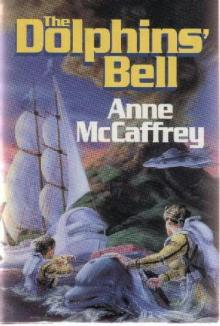 Dolphins' Bell
Dolphins' Bell To Ride Pegasus
To Ride Pegasus Power Play
Power Play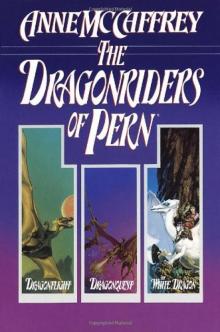 The Dragonriders of Pern
The Dragonriders of Pern An Exchange of Gifts
An Exchange of Gifts The Ship Who Sang
The Ship Who Sang Sky Dragons: Dragonriders of Pern
Sky Dragons: Dragonriders of Pern Maelstrom
Maelstrom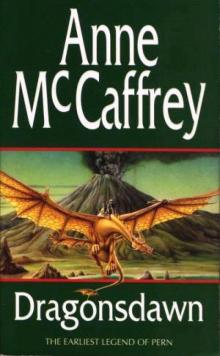 Dragons Dawn
Dragons Dawn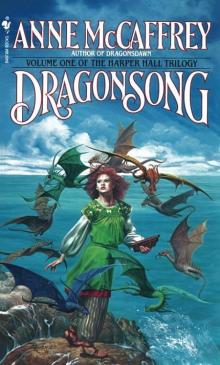 Dragon Song
Dragon Song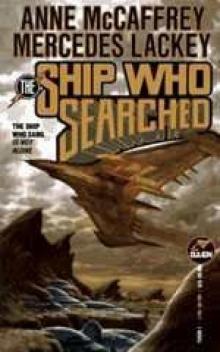 The Ship Who Searched b-3
The Ship Who Searched b-3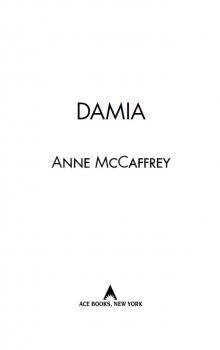 Damia
Damia Freedom's Challenge
Freedom's Challenge